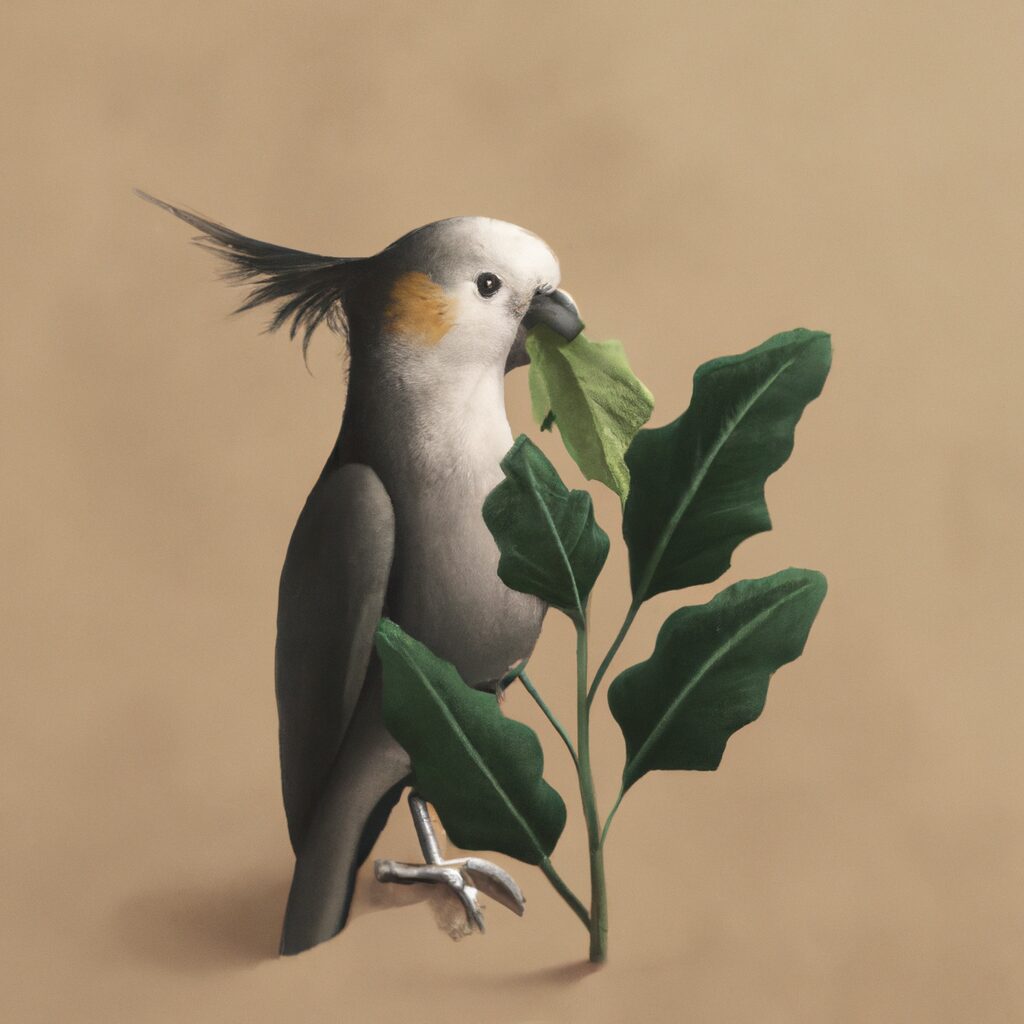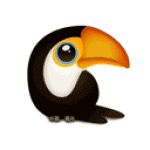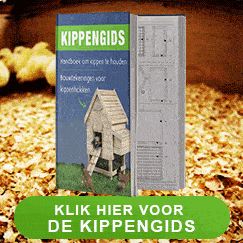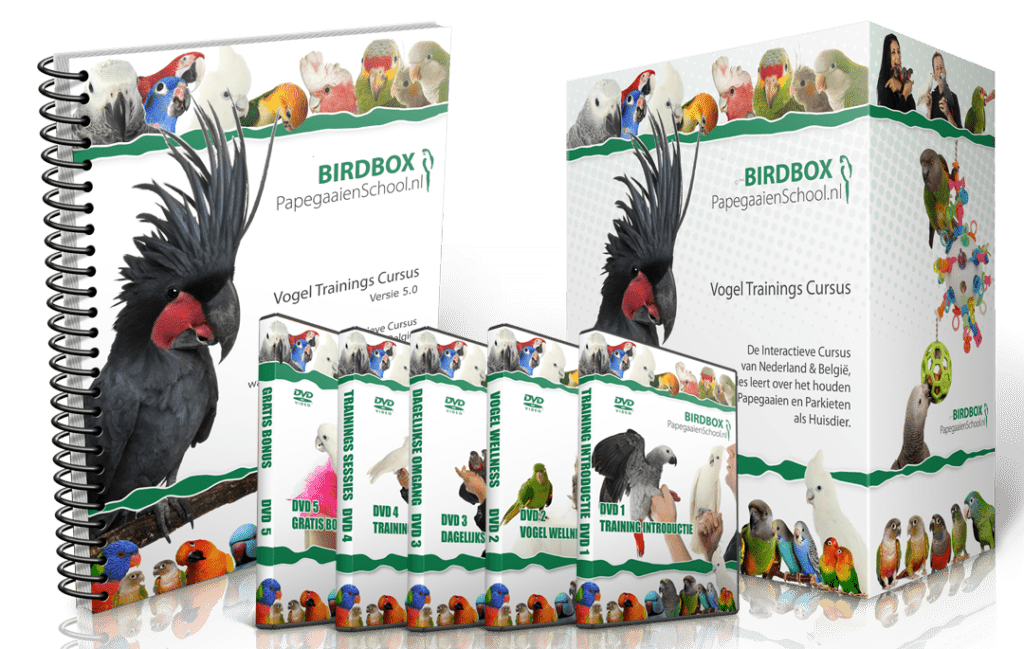

Cockatiels’ diet
To ensure that your cockatiel is getting the right amount of nutrients, it’s important to pay attention to their diet. In order to have a healthy and happy bird, you need the right food. One of the sub-sections we’ll explore is the importance of a proper diet.
Importance of a proper diet
Cockatiels need a varied diet. Seeds alone won’t do. A balanced diet should include calcium and vitamin D3 supplements, like cuttlebone or artificial lighting. Protein should be part of their diet too. Avocado is a no-no for these birds.
Mix things up regularly with fresh fruits and veggies. Not just seed-based diets, which don’t offer complete nutrition. Spinach? It’s not Popeye’s powerhouse for cockatiels. Just another leaf in the wind!
Can cockatiels eat spinach?
To learn if feeding spinach to cockatiels is safe, nutritious, or harmful, read on. “Overview of spinach as a food for cockatiels” and “Benefits and potential drawbacks of feeding spinach to cockatiels” are the key sub-sections of this discussion.
Overview of spinach as a food for cockatiels
Can cockatiels eat spinach? Yes! Spinach is full of vitamins A, C and K, plus minerals like calcium and iron – great for your bird’s health. But it’s best served as a supplement, not the main dish. Chop it up small to prevent choking, and make sure it’s rinsed.
Unlike kale or mustard greens, spinach won’t affect thyroid function in birds. But remember, there was an outbreak of Salmonella infections in 2018 linked to contaminated pre-packaged spinach from Arizona. So, always practice proper hygiene when feeding leafy foods to birds. Spinach might give your cockatiel Popeye strength, but beware of potential gas explosions in their tiny bird bodies!
Benefits and potential drawbacks of feeding spinach to cockatiels
Cockatiels are omnivorous birds that consume a wide range of foods. Spinach, in particular, provides many benefits and potential drawbacks.
- Benefits:
- Rich in vitamins and minerals, such as potassium, folate, and vitamin C.
- Contains antioxidants to protect cells from free radicals.
- Provides dietary fiber.
- Low-calorie option with high calcium levels.
- Potential Drawbacks:
- Oxalic acid can damage kidneys.
- High levels of iron could cause toxicity.
Spinach should not be the only food in a cockatiel’s diet. It should be supplemented with other fruits or veggies to ensure they are receiving all the nutrients they need. Consult an avian vet if unsure about adding spinach. Variety is key for a healthy bird!
Recommended foods for cockatiels
To ensure your cockatiel’s health, it is important to provide a balanced diet. In order to help you with that, this section dives into the recommended foods for cockatiels with a focus on fruits and vegetables as well as seeds and pellets. Providing a variety of these foods can help maintain the overall wellbeing of your feathered friend.
Fruits and vegetables
For cockatiels, proper nutrition is key. Here are some yummy & healthy fruits & veggies:
- Dark greens, like kale, spinach, & parsley, are packed with vitamin A, calcium and iron.
- Carrots & sweet potatoes are loaded with beta-carotene, which helps keep skin healthy.
- Berries, such as strawberries & blueberries, are full of antioxidants to improve immunity.
- Oranges & mangoes provide Vitamin C.
- Apples (but not the seeds) are high in fiber, low in calcium.
However, no more than 25% of their diet should be these kinds of foods. A pelleted or seed diet made especially for cockatiels should supplement their meals.
Avocado & chocolate can be a hazard. They contain Persin, a toxin that can cause respiratory distress or death, particularly in small birds.
Remember, each bird has different dietary needs. If you’re unsure how much produce your cockatiel should eat, consult a vet, just like you would a nutritionist!
Seeds and pellets
Seeds: Easy to find and affordable, yet high in fat and protein. So, feed in moderation! Too much can cause weight gain and health problems.
Pellets: Nutrient-packed and come in lots of flavors and colors. Keep them fresh and monitor intake so your bird isn’t too picky.
Variety: Essential for optimal health. Include small amounts of fruits like seedless grapes, bananas, kiwi, or blueberries. Dark leafy greens and herbs like coriander or parsley are great too. Minerals? Carrots are a good source.
Drinking Water: Providing clean water every day is key for minerals and fluids.
Pro Tip: Introduce new foods slowly! Keep unsafe foods away – cockatiels will put anything in their mouth!
Safe and unsafe foods for cockatiels
To ensure the health and well-being of your cockatiel, it’s crucial to understand which foods are safe and which are not. In order to maintain a nutritious and balanced diet, you should be aware of the foods that should be avoided and the common household foods that are toxic to cockatiels.
Foods that should be avoided
Cockatiels need a balanced diet to stay healthy. But, certain foods can harm them if they don't get the right amount.
Owners must know what foods to avoid, such as:
- Avocado
- Caffeine
- Chocolate
- High-fat or fried foods
- Salty foods
- Sugar and sugary treats
These foods can cause liver failure, heart problems, seizures, or even death. Spices like garlic and onion can also be toxic.
Remember, seeds should not make up the bulk of their diet – it lacks nutrients. Instead, offer a variety of fruits, vegetables, and pellets for cockatiels.
Pets on Mom.com states cockatiels have a long life if they are given proper nutrition. Advise your cockatiel to skip the avocado toast – it can be dangerous for them!
Common household foods that are toxic to cockatiels
Owning a cockatiel? Know what foods are toxic for them. Several common items can cause severe health risks. For instance, avocados have persin which can lead to heart failure or death. Chocolate has caffeine and theobromine which can cause seizures or cardiac arrest. And caffeine in drinks like coffee, tea or soda can cause vomiting, diarrhea or death.
Fruit pits (apricot or cherry) and vegetables like onions or garlic can also be toxic and lead to hemolytic anemia or Heinz body formation. Symptoms of toxicity can vary from lethargy to loss of appetite or seizure episodes. If you think your bird has ingested something dangerous, it is best to consult a vet.
Give them a balanced diet of fresh fruits and veggies. Water is also a must for a healthy bird. Avoid feeding them anything with high sugar or fat content. Don’t learn the hard way – stay away from these toxic foods!
Feeding tips for cockatiel owners
To make sure your cockatiel is happy and healthy, it’s important to know how and what to feed them. In order to do this with confidence, you’ll need some feeding tips for cockatiel owners. With this guide to serving size, how often you should feed your cockatiel, and ways to introduce new foods, you can ensure that your feathered friend receives a well-balanced diet.
Serving size
Feeding a cockatiel can be tricky. To make things easier, create a table with the ‘Recommended Daily Amount’ based on their age and sex. Here’s a table of figures:
| Age (months) | Female (grams) | Male (grams) |
|---|---|---|
| 0-3 | 9-10 | 11-12 |
| 4-6 | 14-18 | 17-19 |
| 7-9 | 19-22 | 22-24 |
| Adult (>10) | 25 | 30 |
Remember that each bird is unique. Monitor them for signs of overeating or undereating and adjust their portions accordingly.
Pro Tip: Eating together is part of the cockatiel’s bonding ritual. Share a plate with them at mealtime to boost their happiness.
Cockatiels will let you know when they’re full – just like being in a buffet line with a bird brain!
How often should you feed your cockatiel?
Cockatiels are cheerful, social birds, needing a well-balanced diet to thrive. Nourishing them with the right amount of nutrients is important for their health and long life.
- Feed adult cockatiels once or twice daily
- Supply fresh food and water regularly
- Steer clear of overfeeding treats like millet and seeds
- Consult a vet for special dietary needs
Remember, every cockatiel is different, so feeding should vary depending on age, gender, size and activity level. Too much food can cause obesity, not enough can lead to malnutrition. So, get expert advice for an individual diet plan.
Having more than one bird? You may have to multiply the amounts. Keeping them fit is essential for their wellbeing and long-term friendship.
Give them a balanced diet with fresh vegetables and fruits. Show your love with healthy snacks like cooked meats or whole-grains.
Love your feathered friends as they love you! Guarantee proper nutrition now to delight in many years of joyful chirping!
Tempting a cockatiel to try something new? Bribe or trick them – that’s the way to go!
Ways to introduce new foods to your cockatiel
Introducing new food to your feathery friend can be a fun experience for both of you! To make sure it goes smoothly, there are certain techniques that you need to follow. For example:
- Give small amounts of the new food mixed in with food they already like.
- Mix it up by using different textures, colours and shapes.
- Offer some water to go with it.
You should also keep an eye on how they’re eating. The success rate will depend on age, health, and personality. Look out for vocalisations and physical signs of liking or disliking the food. This will help you improve future meal introductions without causing distress.
Try moving the dishes around and changing what’s on offer daily. This can make it more fun for your pet and give them a better range of nutrients.
To summarise: a bird in the hand is worth two in the bowl!
Conclusion
Cockatiels can eat spinach, however it should be given in moderation. This is because spinach contains oxalic acid that can stop calcium absorption, causing health issues. Also, spinach is high in iron which is toxic if consumed too much. Instead, feed them a selection of leafy greens and veggies to keep their diet balanced.
Ensure your pet bird gets the correct nutrition and always discuss with an avian vet before making any diet changes.
Frequently Asked Questions
1. Can cockatiels eat spinach?
Yes, cockatiels can eat spinach in moderation as part of a balanced diet.
2. Is spinach good for cockatiels?
Spinach is a nutritious green vegetable that provides essential vitamins and minerals for cockatiels when fed in moderation.
3. Can spinach be harmful to cockatiels?
Excessive amounts of spinach can cause health issues in cockatiels due to the high levels of oxalates, which can lead to potential kidney problems.
4. How should I prepare spinach for my cockatiel?
Spinach should always be washed thoroughly to remove any dirt or pesticides before serving it to your cockatiel. It’s best to chop it into small pieces or blend it to make it easier for your bird to eat.
5. Can spinach be given to cockatiels daily?
No, spinach should be given to cockatiels on a limited basis, once or twice a week, as a supplement to their regular diet.
6. What are some other greens that I can offer my cockatiel?
You can vary your cockatiel’s diet by offering other greens such as kale, collard greens, dandelion greens, and parsley, as long as they are prepared and offered in moderation and alongside a well-balanced diet.
{
“@context”: “https://schema.org/”,
“@type”: “FAQPage”,
“mainEntity”: [
{
“@type”: “Question”,
“name”: “Can cockatiels eat spinach?”,
“acceptedAnswer”: {
“@type”: “Answer”,
“text”: “Yes, cockatiels can eat spinach in moderation as part of a balanced diet.”
}
},
{
“@type”: “Question”,
“name”: “Is spinach good for cockatiels?”,
“acceptedAnswer”: {
“@type”: “Answer”,
“text”: “Spinach is a nutritious green vegetable that provides essential vitamins and minerals for cockatiels when fed in moderation.”
}
},
{
“@type”: “Question”,
“name”: “Can spinach be harmful to cockatiels?”,
“acceptedAnswer”: {
“@type”: “Answer”,
“text”: “Excessive amounts of spinach can cause health issues in cockatiels due to the high levels of oxalates, which can lead to potential kidney problems.”
}
},
{
“@type”: “Question”,
“name”: “How should I prepare spinach for my cockatiel?”,
“acceptedAnswer”: {
“@type”: “Answer”,
“text”: “Spinach should always be washed thoroughly to remove any dirt or pesticides before serving it to your cockatiel. It’s best to chop it into small pieces or blend it to make it easier for your bird to eat.”
}
},
{
“@type”: “Question”,
“name”: “Can spinach be given to cockatiels daily?”,
“acceptedAnswer”: {
“@type”: “Answer”,
“text”: “No, spinach should be given to cockatiels on a limited basis, once or twice a week, as a supplement to their regular diet.”
}
},
{
“@type”: “Question”,
“name”: “What are some other greens that I can offer my cockatiel?”,
“acceptedAnswer”: {
“@type”: “Answer”,
“text”: “You can vary your cockatiel’s diet by offering other greens such as kale, collard greens, dandelion greens, and parsley, as long as they are prepared and offered in moderation and alongside a well-balanced diet.”
}
}
]
}


